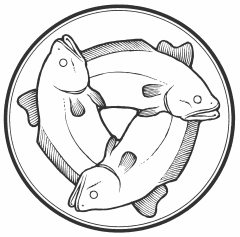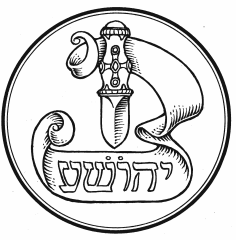 Grace, mercy, and peace to you from God our Father, and from our Lord and Savior, Jesus Christ, amen. The text for the sermon is the Gospel, which was read earlier.
Grace, mercy, and peace to you from God our Father, and from our Lord and Savior, Jesus Christ, amen. The text for the sermon is the Gospel, which was read earlier.
The clock and calendar dictate much of our behavior. It’s time to eat; time for the news; time for school; time to go to work; time to start working on taxes. The new year has already lost its magic glow as our new year resolutions have already been broken. Time is the eternal taskmaster and everything must take place at the appointed time or else everything falls apart.
Jesus too follows time and follows it to the letter. Everything He does happens at exactly the right time, not a moment before or a moment after. What occurs in our text is no different. Jesus says, “The time is fulfilled, and the kingdom of God is at hand; repent and believe in the gospel.” Did you catch the first command Jesus gives in Mark’s Gospel? First, He says the time is fulfilled and the kingdom of God is at hand. The time has come; not a moment too early and not a moment too late. Then comes Jesus’ command: repent. Repent is the first thing Jesus tells people to do. That word becomes the key word whenever He meets someone. It’s kind of a summary of what He taught, what He preached, what He wanted His miracles to bring about in people’s lives.
When Jesus uses the word repent, He is calling people to turn away from anything that leads away from Him and to turn instead toward Him. What difficult thing repentance is, to turn away from what is contrary to the Word of God. Just what exactly is contrary to the Word of God? In short, the world. What the world teaches and preaches often runs contrary to God’s Word. The world says it’s okay to do any number of things that the Word of God condemns. It’s is so difficult for us to abide by God’s Word when we are told by the world that what we’re doing is okay. But regardless of what the world says, God’s Word is the ultimate authority and Jesus says to repent. That’s not the only command Jesus issues. His second command is believe. Believe not just anything, but believe in Jesus. Trust Him. Turn toward Him. Hold on to Him.
Repent and believe is the heart of Jesus’ message when He speaks or does something. He says and does much more, but this is the gist, the summary, the heart of His ministry: repent and believe. Repent of sin. Believe, for He has come to remove it. And He will!
The time had been fulfilled with the coming of Jesus. Since Jesus arrived on the scene, the prophecies from the Old Testament were fulfilled in Him. All of history now hinges on what Jesus would do. And what exactly would Jesus do? He would come to live a perfect life for you because you live an imperfect life. He would come to die a sinner’s death even though He was sinless. He would rise again to eternal life in order to give you eternal life. This is what Jesus would come and do and this is what Jesus did for you. He did it, the action is already done. There is nothing to be done on your part because Christ has already done it. The only thing Jesus requires of you is to repent and believe.
Jesus calls for us to repent. He says to take responsibility for what you have done wrong. We call that confession, coming before Him with repentant hearts seeking His forgiveness. That is why we confess our sins each week, turning away from the sin in our lives and turning toward the forgiveness that Jesus gives. But we don’t just confess our sins on Sunday, as if we have only sinned that morning. We need to confess our sins daily for we sin daily. We need to turn away from our sinful lives and turn to Jesus and His forgiveness daily.
Jesus issues a third command in our text, one that He issues to Simon, Andrew, James and John: “Follow me, and I will make you become fishers of men.” There, Jesus calls them to become His disciples. That same command Jesus gave to them He gives to you as well. In your Baptism, He calls you and says, “Follow me.” We follow Jesus, not out of compulsion or a sense of righteousness on our part, but we follow Christ because of the mercy that He has shown us. We follow Christ; we become His disciples because of what Jesus has done for us. We follow Him to the cross where we see Him take our sin upon Himself, giving to us His righteousness. We follow Christ as He proclaims eternal victory over sin, death, and the devil on account of His life, death, and resurrection. We follow Christ to our heavenly Father, who sent His only begotten Son to restore His creation to what it was meant to be: holy and perfect.
This command of Jesus to follow Him is not a command that is to be taken lightly. To follow Jesus means first of all to subordinate everything to the Lord. Give yourself, your heart, mind, and soul to Jesus.
To follow the Lord also means that one will strive to simulate the Savior in all His ways, to be holy! St. Peter writes, “But as he who called you is holy, you also be holy in all your conduct.” Your attitude should be the same as that of Christ; that is, we should love and forgive unconditionally, just as St. Paul writes, “Be kind to one another, tenderhearted, forgiving one another, as God in Christ forgave you.”
Finally, to follow Christ means to share the work of Christ. This point receives a mighty emphasis in Jesus’ statement, “I will make you become fishers of men.” The preaching of the Gospel was Jesus’ highest priority. His Gospel was more important than eating and drinking, than healing and miracles, than any personal comfort. The Gospel is this: Believe in Jesus, who suffered your hell in your place, and you will be saved. Jesus was determined to fulfill that Gospel and to proclaim that Gospel to sinners. His followers will share that commitment throughout their lives.
Today, our Lord calls to you. He calls you to “repent and believe in the gospel.” He calls you to repentance out of the love that God the Father has for you, His beloved creation. He calls you to repentance out of the love that He showed for you on the cross when He took upon Himself all of your sins. He calls you to believe with the faith granted to you in your Baptism through the work of the Holy Spirit. He calls you to believe in the promises that He has made to you and for you, promises such as, “I will come again and will take you to myself, that where I am you may be also,” and “Truly, I say to you, today you will be with me in Paradise.” Our Lord calls you to follow Him. As baptized believers, we follow Him from death to everlasting life. In Jesus’ name, amen. Now the peace of God that passes all understanding, keep your hearts and minds through faith in Christ Jesus, amen.





